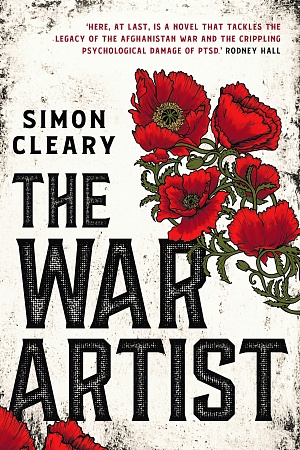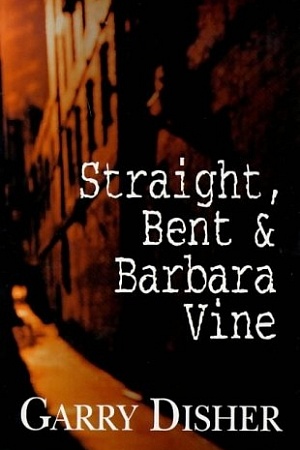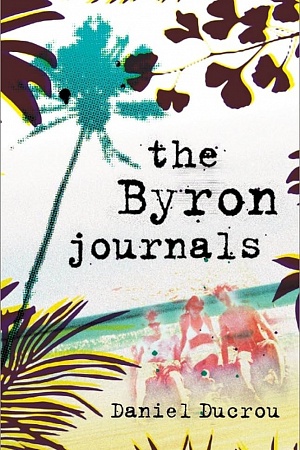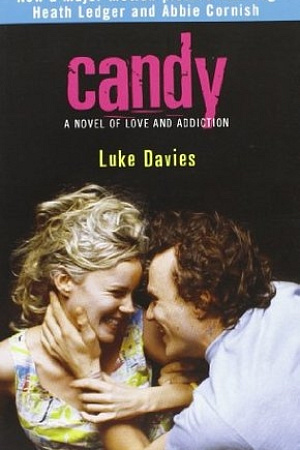Symposium | The State of Australian Fiction
McKenzie Wark
Some people only read novels; some people only fuck goats. The latter is an instance of a sexual fetish, where only one specific form of the act can furnish one’s jollies. The former is an instance of a textual fetish, which is pretty much the same thing. Not that I think there is anything wrong with fetishism. I’m broadminded. But where sexual fetishists don’t go round pretending to speak for the whole of sexuality, the boosters of Australian fiction get away with the pretence that they speak for the whole of literature. Australian literature is in the hands of compulsive goat fuckers. It’s not just that remarkable nonfiction and poetry stands always in the shadow of the goat. The very act of reading, the values and virtues it can encompass, end up being narrowly defined. It’s not just that fiction receives too much subsidy, too much publicity and too many prizes relative to goat-free reading experiences. It is that even when other genres of writing are celebrated and promoted, it is usually on the basis of a resemblance to fiction. That literature may aspire to quite other qualities, values and experiences is repressed in favour of a textual fetish. Novel fetishists, like most perverts of repetition, find it harder and harder to get off, and blame the novel itself for their jaded tastes. That’s their problem. It need not deter fiction writers from writing books that, to the non-fetishist, seem as good these days as they have ever been. But the literary world as a whole is in sad need of reform. Its other minorities need space and time and attention, in which to glisten in the light.
Katharine England
I think too much (mediocre) fiction is being published. For me, one of the oddest things is the chapter in all the writing manuals on generating ideas, thinking of something to write about. It confirms my impression that there are hordes of writers and would-be writers with nothing pressing to say. Another odd thing is the publishing practice of commissioning writers and celebrities to fill perceived gaps in the market. In the children’s area, a huge amount of mediocre fiction is produced on the questionable grounds that ‘at least it will get/ keep them reading ’. My fear is that the dross will drown books that may have proved to be significant. Publishers who commission ‘bestsellers’ are often also those who have given up reading unsolicited manuscripts. There is only so much time and so much shelf space: ‘the canon’ changes and has anyway been in question for some years, but a society – a literature –needs to know its past, including its recent past, and as we publish more and more our significant past is squeezed out of print. I like the concept of the necessary novel – the one that nags its author to be written, that changes in even the slightest degree the way in which its reader sees the world. But it has to be admitted that different things are necessary to different people. There are also novels which, read with attention, read twice, grow on the reader, start to impress with their structure, balance, sense of place – or with the sheer investment of faith, time and energy on the part of author, editor (one hopes – another current commonplace is the promising first or second novel ripped from its author without the aid of editorial midwifery) and publisher that is a full-length work of fiction. If there is much that seems to me imaginatively impoverished or undercooked there is also much that seems exciting and good – and occasionally it is the same book over two readings.
James Bradley
I’m never quite sure how to respond to the ‘too many books’ argument. My response as an author is to feel a bit edgy and wonder whether my books might be part of this supposed torrent of mediocre novels. How would I know after all?
But my response as one of the wider community of writers is one of irritation. Contemporary Australian fiction is internationally successful in a way it has never been before, critically and commercially. And while this success is being achieved across the board, it’s particularly noticeable amongst younger writers. Yet back home there is little or no recognition of this. Instead the background burble is too many books, badly written, formulaic, overexposed, nothing but hype, blah, blah, blah. And ironically it’s a burble that grows loudest among the younger writers, and even louder around the younger women. Now I don’t accept that international recognition is the litmus test of success, but it’s certainly a respectable yardstick. Yet it’s a yardstick which many of our cultural commentators – call them senior critics or gatekeepers or what you will – only seems to apply when we’re talking about Murray Bail or Peter Robb or one of the other anointed repositories of our literary culture. When was the last time you heard about the (very real) success of Julia Leigh overseas? Or Nikki Gemmell? Or Eliot Perlman or Matthew Reilly or Michelle de Kretser? I could go on and on, but I won’t.
The thing is that it’s just silly to talk of too many novels. After all, how many is enough? Is there any consensus about which ones shouldn’t be published? And who forms that consensus? If fewer were published would the quality from the unpublished ones somehow move osmotically into the ones that were left?
No, what bothers people is the fact that in a vibrant culture lots of people talk at once, in lots of different voices, instead of a select few. And yes, a lot of what gets said is forgettable, and a lot of it is noise, but that’s always been the case. You need the noise to get the good stuff, because you never know whose signal will resolve out of it into something unforgettable until it happens. But one thing’s for certain: without the noise there’s nothing for anything to resolve out of.










Leave a comment
If you are an ABR subscriber, you will need to sign in to post a comment.
If you have forgotten your sign in details, or if you receive an error message when trying to submit your comment, please email your comment (and the name of the article to which it relates) to ABR Comments. We will review your comment and, subject to approval, we will post it under your name.
Please note that all comments must be approved by ABR and comply with our Terms & Conditions.